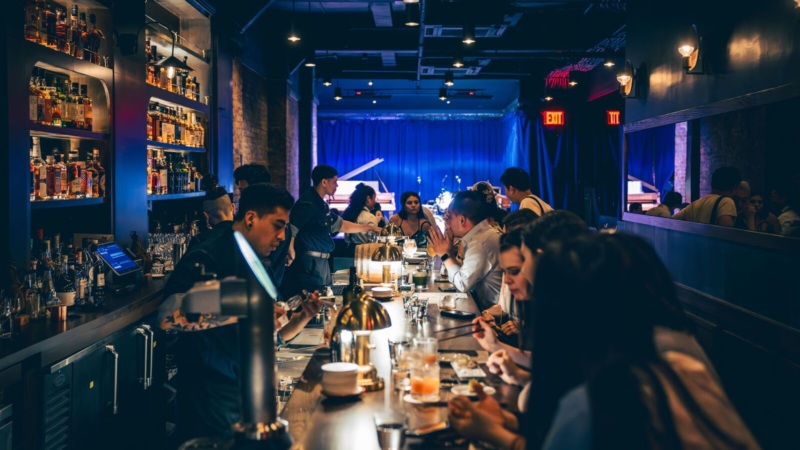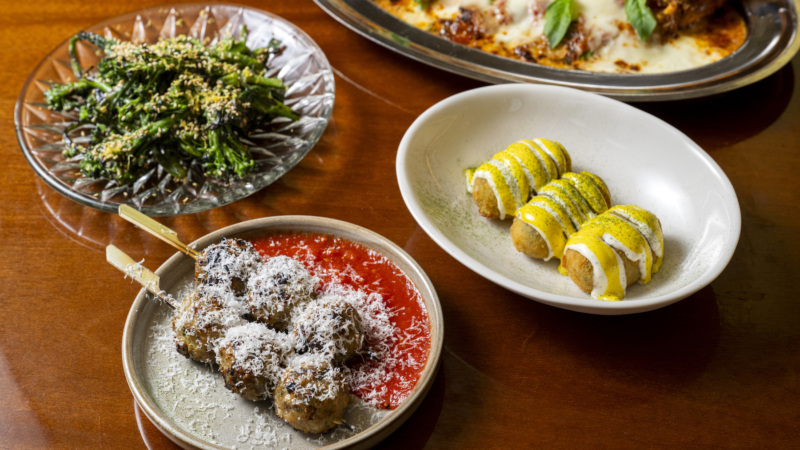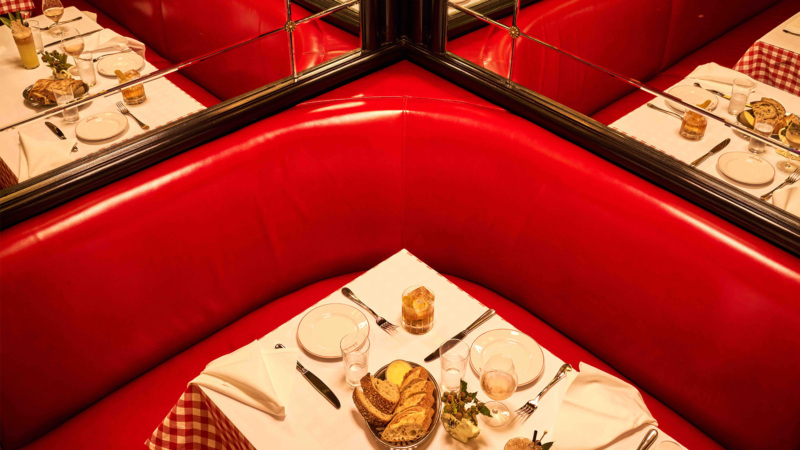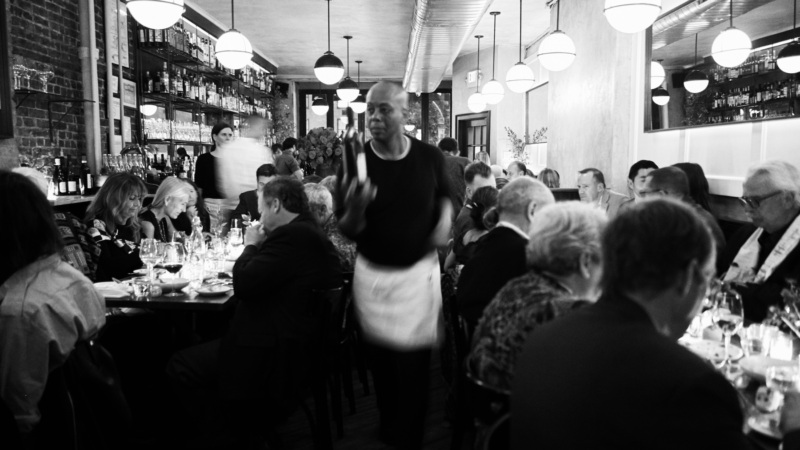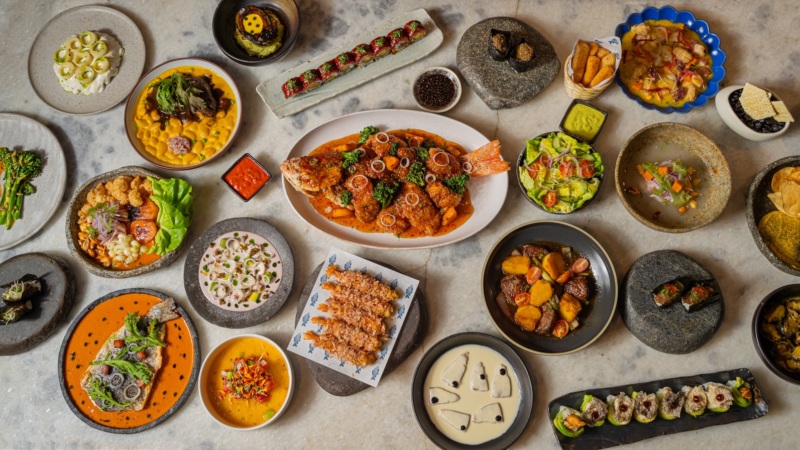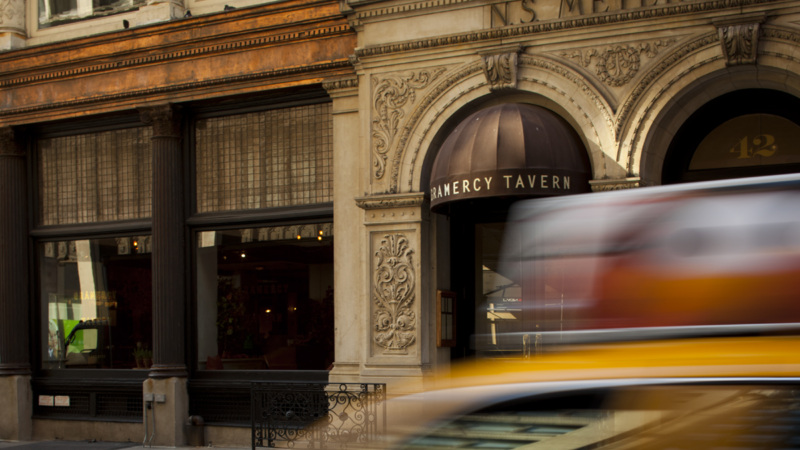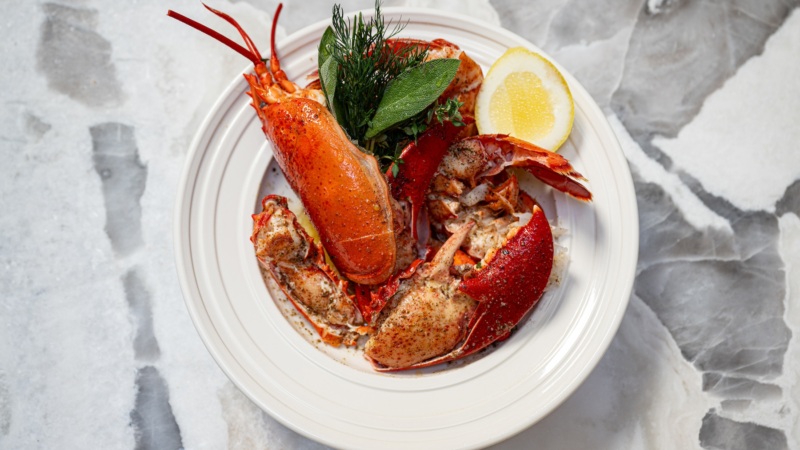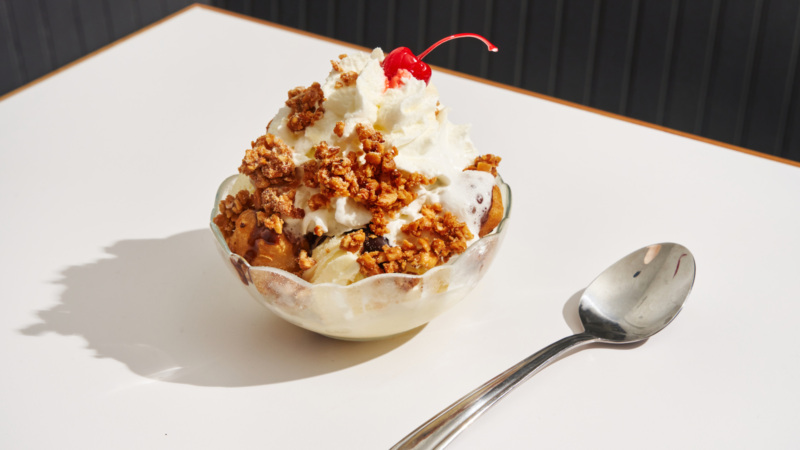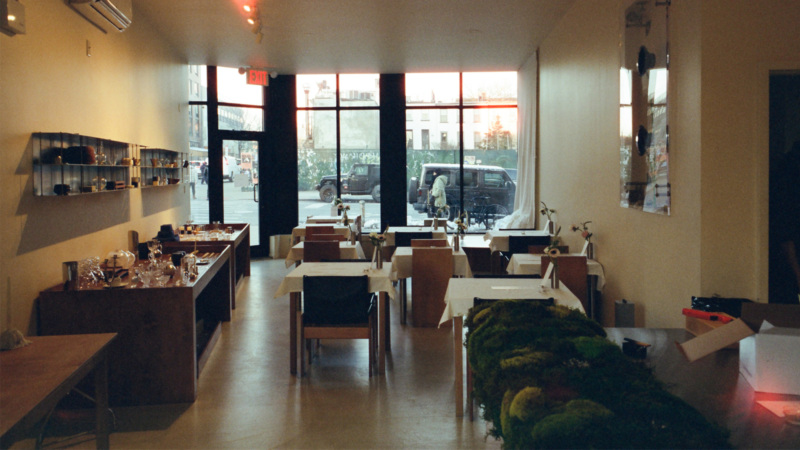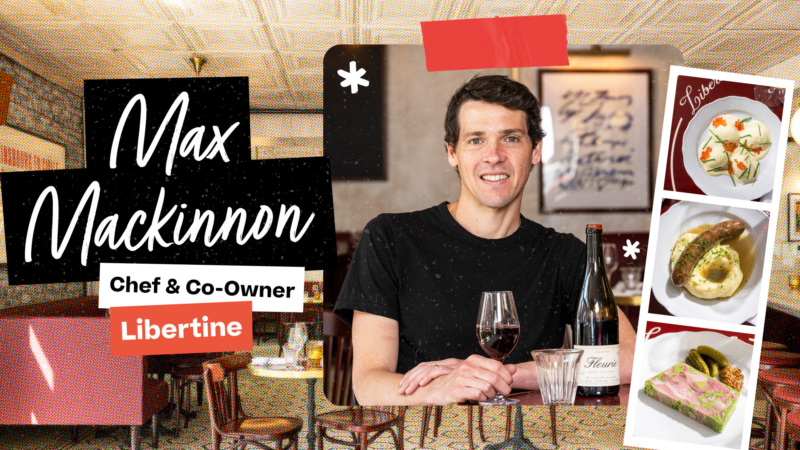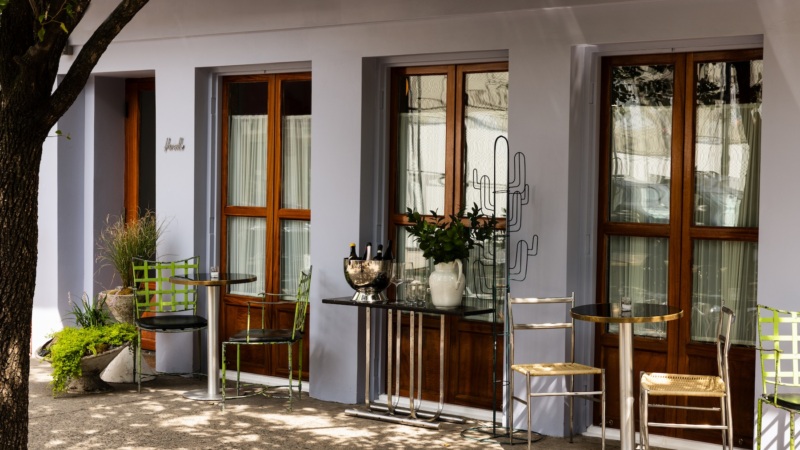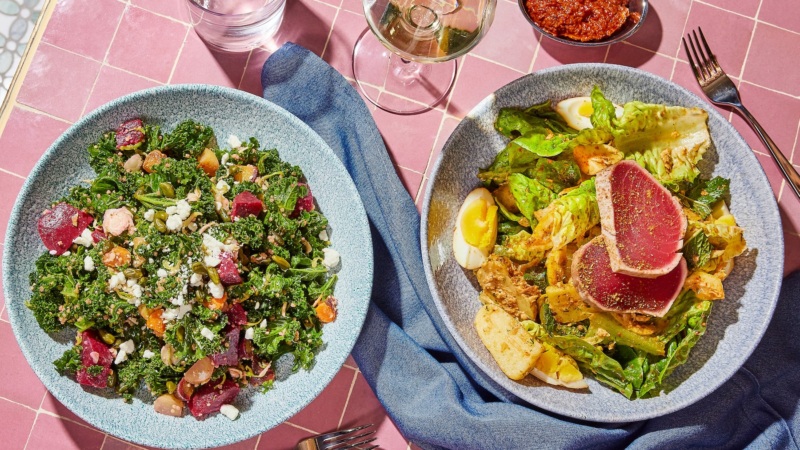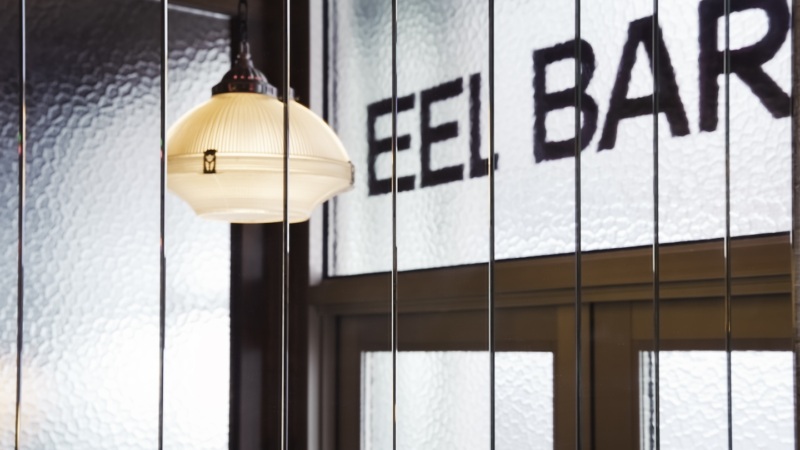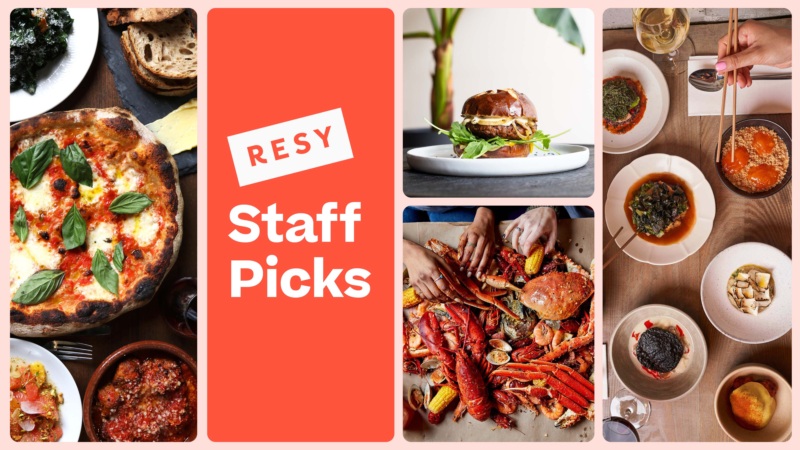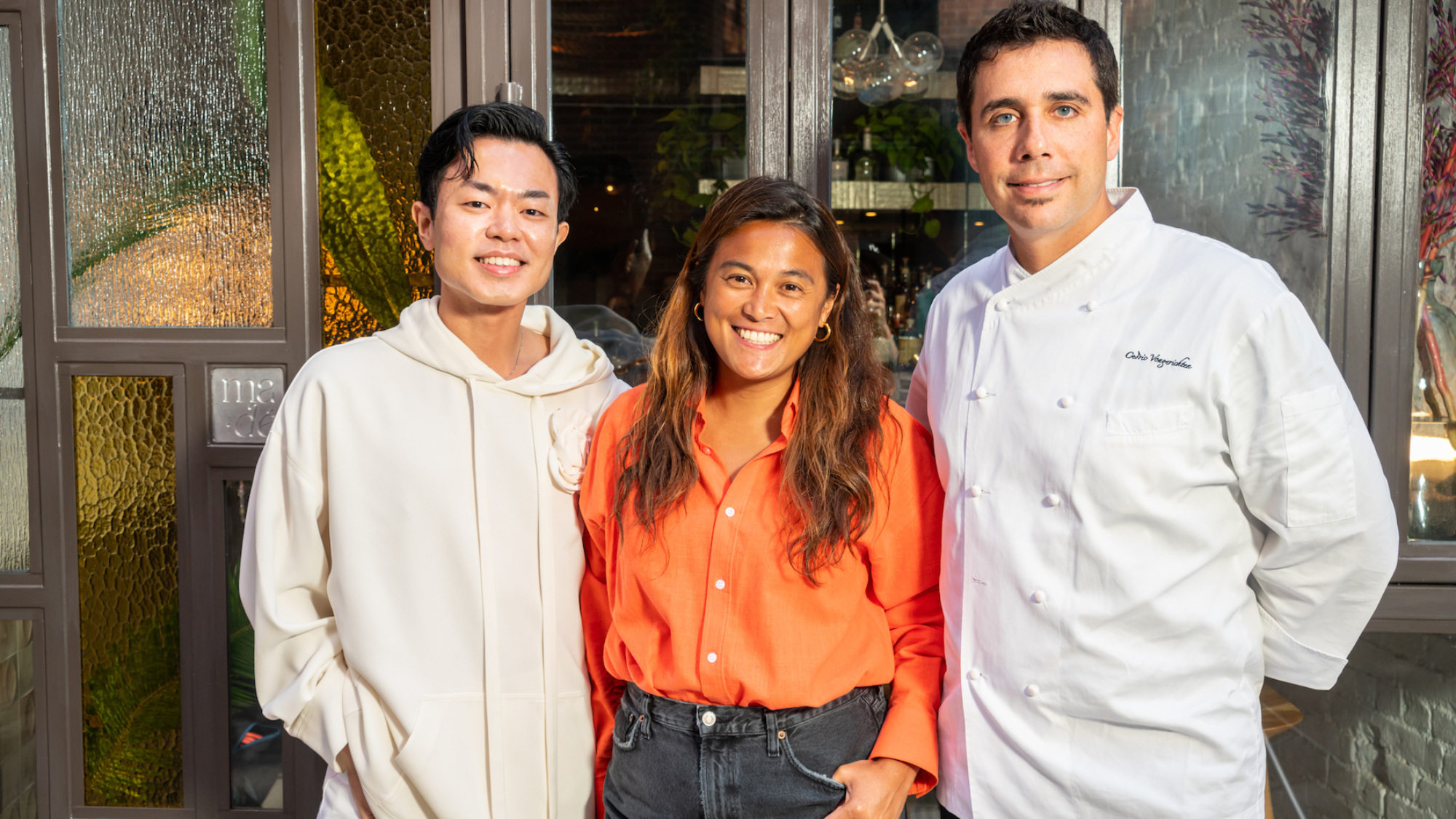
Everything You Need to Know About Ma•dé, the Newest Restaurant From the Wayan Team
When he opened Wayan on Spring Street in 2019 with his wife Ochi Latjuba Vongerichten and their business partner Ezra J. William, Cédric Vongerichten set himself apart from his famous father Jean-Georges’ restaurant empire. Now, four years later, the upscale Indonesian spot with French influences is welcoming its first sibling, Ma•dé, opening just next door this week.
“Wayan” is the Balinese name for a first-born child, and Ma·dé, appropriately, means second-born. Details about this newest venue have been hotly anticipated, and on April 24th, the doors open at last so, book your Resy and read on for all the must-know info.
1. Expect a menu similar to Wayan’s, but with even more global influences.
The cuisine here is largely Indonesian with French flair, like Wayan, but Ma•dé features dishes with a greater variety of international culinary influences.
“I didn’t want to box myself into only Indonesian. I wanted my creativity to be able to expand more at Ma•dé,” Cédric Vongerichten says. “It’s going to be a lot more global, just like we are. We travel a lot, and we see a lot of different cuisines, spices, etc. from around the world.”
That means you can expect to see Japanese, Korean, Latin, and Moroccan ingredients or cooking techniques in the food, as well as those from India, perhaps, where the Vongerichtens have recently traveled.
Another difference between Ma•dé and its older sibling is that Wayan’s kitchen is gas-powered, and Ma•dé’s will be entirely electric. “Like I just told someone, [Wayan] is the Mercedes and next door [Ma•dé] is the Tesla,” Latjuba Vongerichten jokes.
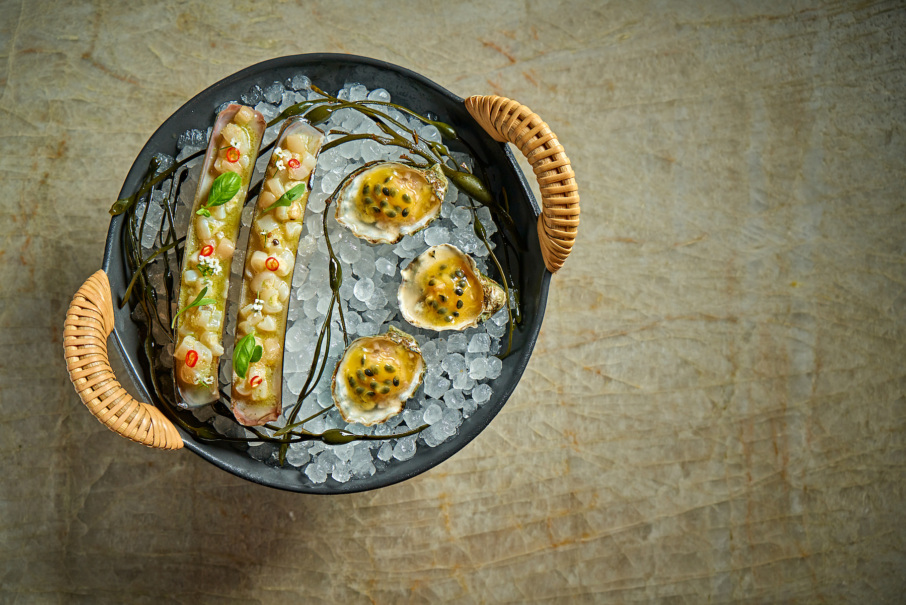
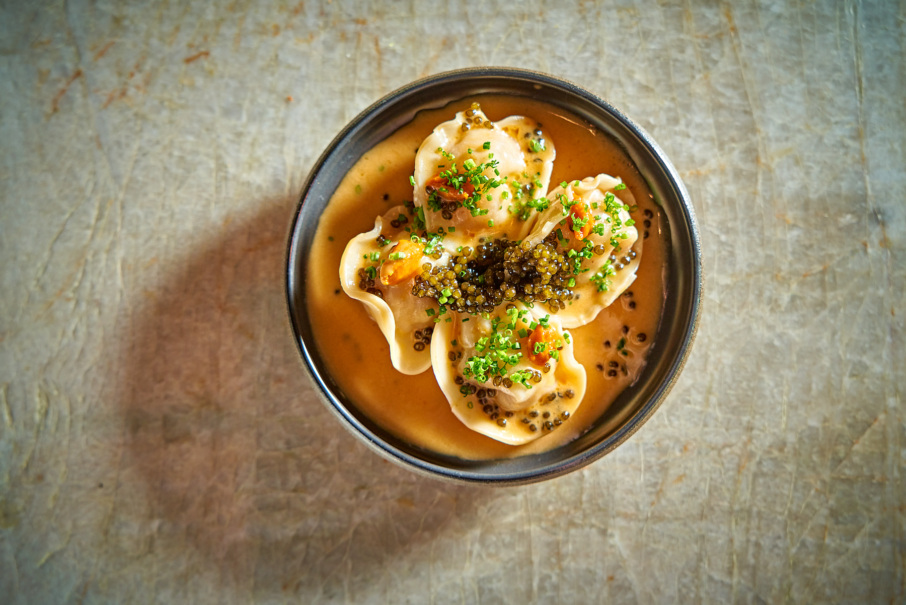
2. Pescatarian and vegetarian options are plenty.
“Light” and “clean” are the key words Vongerichten and Latjuba Vongerichten use to describe the type of fare guests can expect at Ma•dé. The menu isn’t going to be strictly pescatarian – Cédric wanted to leave himself room to experiment with meat in some dishes – but it will feature primarily pescatarian, vegetarian, and vegan fare.
That could be in the form of a white asparagus salad with seaweed kimchi, kombu-cured fluke, and a fava bean dumpling, which also happens to be vegan. “I was surprised,” Latjuba Vongerichten says. “I thought there was some meat or dairy, but there’s nothing. It’s very refreshing.”
The colorful, produce-heavy menu will be seasonal, and Vongerichten frequents the Union Square Greenmarket for fresh, local vegetables to work with. For spring, expect to see plenty of turnips, radishes, carrots, morels, and asparagus on offer.
Same goes for the seafood. Vongerichten says they plan to use as much local fare as possible, like sea bass and scallops from Montauk and surrounding areas, but he adds he will be sourcing some seafood from Japan and California as well.
The menu is divided into two main sections, “Land” and “Sea,” with each dish meticulously constructed but named simply for its central vegetable or seafood ingredient. There’s also a “Treat Yo’ Self” section currently offering uni, black truffle, and Petrosian caviar.
The desserts are largely fruit-centric, like the banana dish served with Amero, pecans, and crème fraîche, or the rhubarb with chutney and a warm madeleine. Cheese lovers, however, might go for the Tête de Moine served with pumpernickel, marcona almonds, and black truffle.
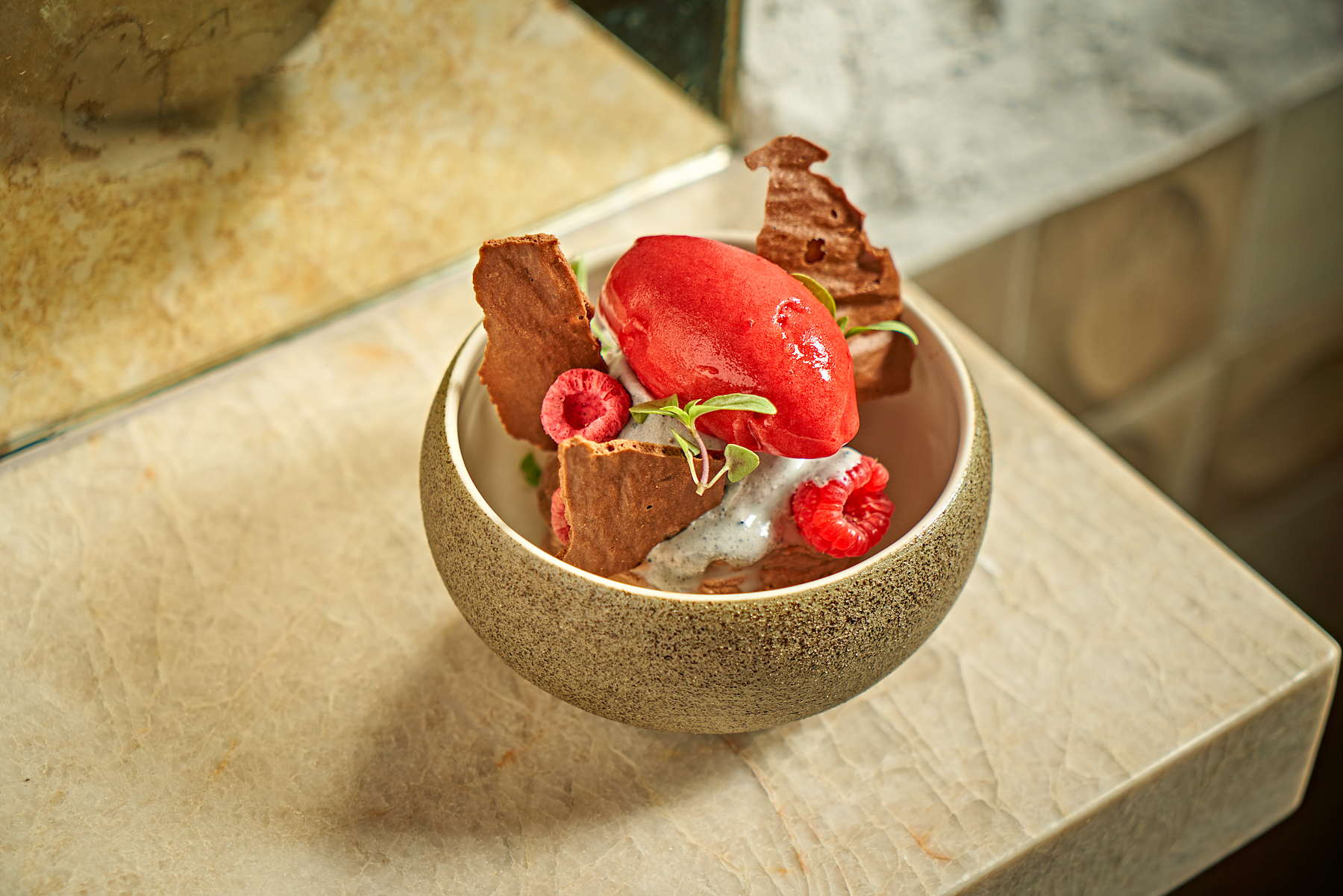
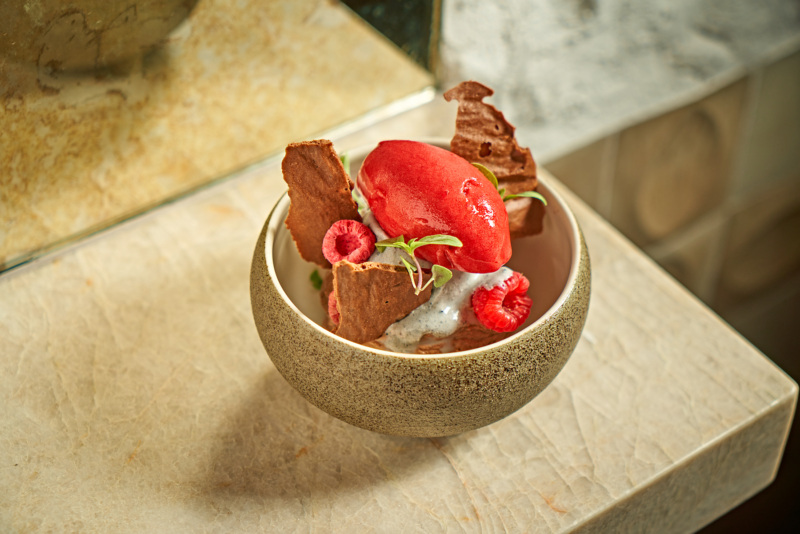
3. The best way to experience Ma•dé is to try a little of everything.
Latjuba Vongerichten, who is originally from Indonesia, says she was accustomed to family-style dining before she moved to the United States, and as someone who likes to try a little of everything, it’s her preferred way of ordering (and probably yours, too, given that you’re the kind of person who reads Resy). She jokes about how her wandering fork often makes its way to Cédric’s plate when the two dine out together.
In line with the restaurant’s Indonesian roots, as well as the contemporary dining scene here in New York, the menu at Ma•dé is best enjoyed in a shared style. Guests are encouraged to order several plates for the whole table to get a well-rounded sampling of what’s on the menu.
“New York has already changed [its] eating style; it’s not like you order your own food,” Latjuba Vongerichten says. “That’s the most fun part of dining with someone — having different options.”
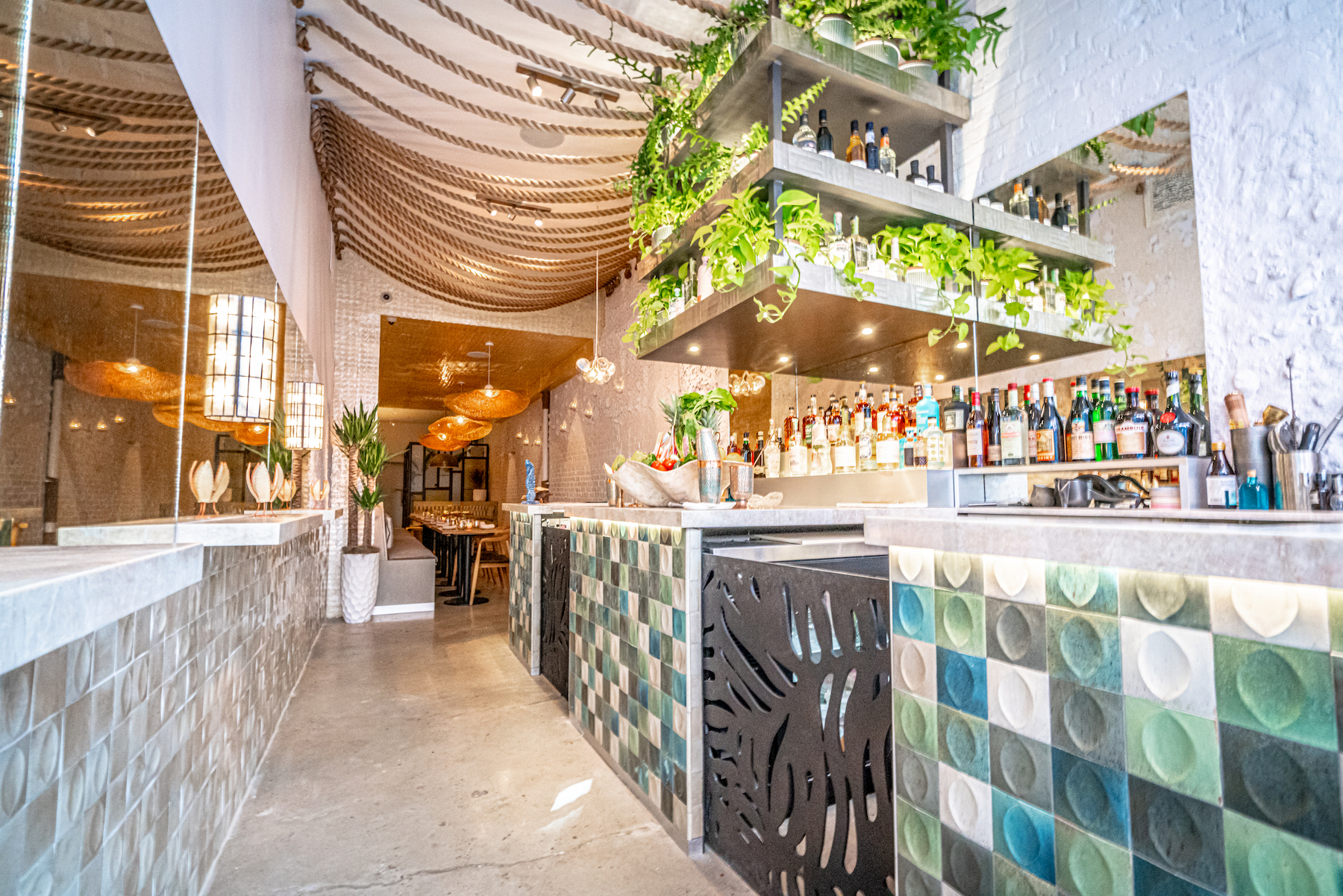
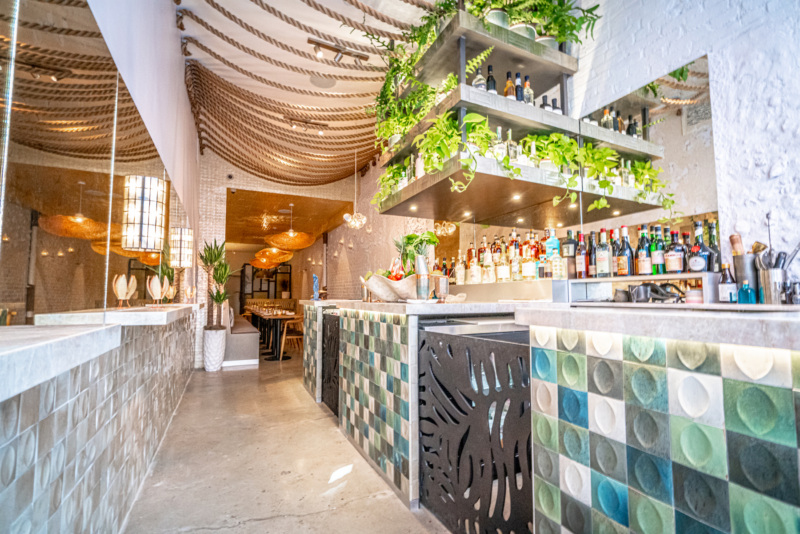
4. The décor is inspired by the beachside bars of Bali.
First-time visitors may be surprised to find a little sliver of coastal energy tucked into the middle of Spring Street. The bright, warmly lit space consists of just 24 seats, but mirrored walls and pastel-colored tiles keep it feeling airy and breathable. Ropes hanging from the ceiling amplify the nautical feel, and design motifs like freeform shapes reference Indonesia’s coral reefs.
Each dish and glassware is specially curated, and also reflects Cédric and Ochi’s international travels, including colorful, handmade pieces they selected and commissioned from makers in Bali and elsewhere in Indonesia.
The interior design is the product of Linda Daniels, who worked on Wayan and the Vongerichtens’ Jakarta restaurants, Vong Kitchen and Le Burger, when she was with the noted design firm, the Rockwell Group. She’s now working out of her own firm.
“She understands our style,” Latjuba Vongerichten says. Their creative chemistry is more than just serendipity: Daniels has actually accompanied the couple on some of their travels, including to Bali, so she’s had the chance to experience their inspirations firsthand.
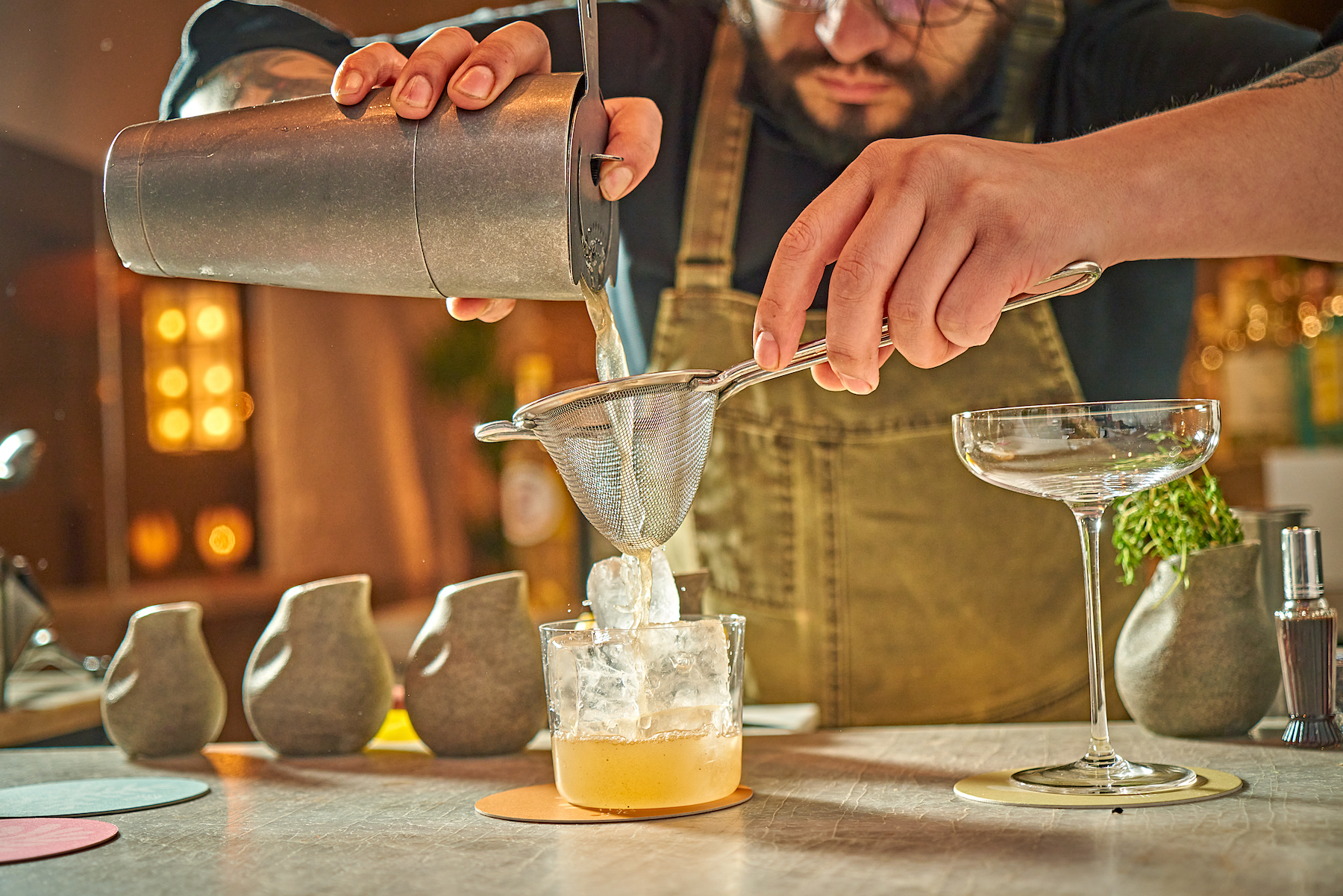
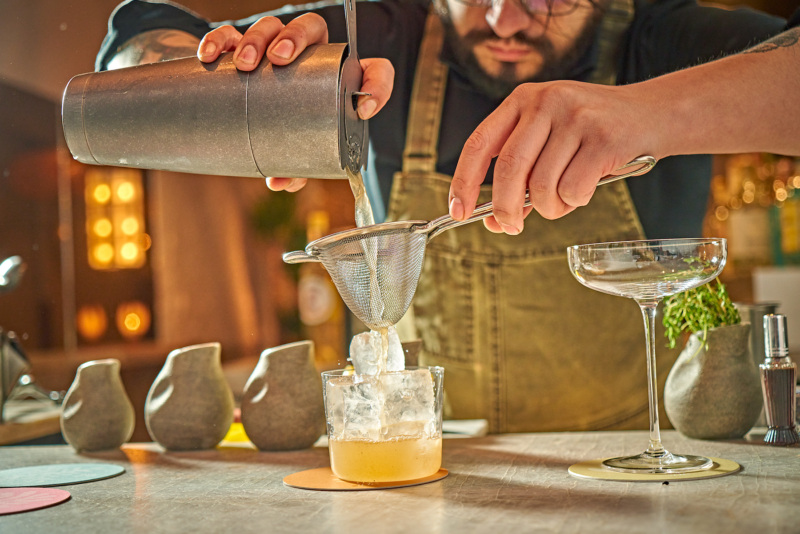
5. The beachy vibe extends to the drink menu, too.
Above all, the Vongerichtens say the drink program is heavily influenced by the restaurant’s beach club feel, serving lots of rum, agave, and tequila concoctions. Expect refreshing cocktails with lots of fresh ingredients and a culinary flair.
The drinks deftly blend Ma•dé’s bouquet of global influences – the Cartagena, for instance, combines dark rum, banana, tomato, galangal, and basil; the Huatulco introduces mezcal and rabarbaro (an Italian amaro made from Chinese rhubarb) to beets, yuzu vinegar, puya chile peppers, and lemon oil.
For the bar, sustainability and social responsibility are at front of mind. Latjuba Vongerichten says they’ve been seeking out spirits that are organic, ones that come in bottles made from recycled materials, and spirits by woman-owned brands. They’ll also be stocking a pared-down, carefully curated wine list, so don’t anticipate a 50-page booklet of French vintages.
Ma•dé is open nightly for dinner Monday through Friday for now, with expanded hours to begin shortly.
Ariana DiValentino is a writer, filmmaker, and actor based in Brooklyn. Follow her on Instagram, Twitter, and TikTok. Follow Resy, too.
Discover More
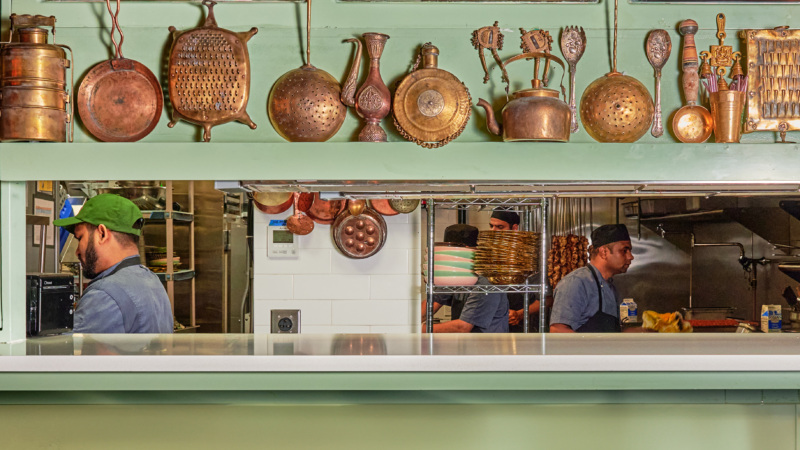
Stephen Satterfield's Corner Table



